Does Mouth Taping at Night Really Work? Scam or Solution?
Category: Airway Health

Let’s talk about something that’s going viral right now: mouth taping. You’ve seen the videos of people that are taping their mouths shut before bed, claiming it cured their snoring, anxiety, poor sleep, even brain fog. And while the idea sounds simple, just tape your lips and wake up refreshed, it’s missing the bigger picture.

Here’s what almost nobody is talking about:
Mouth breathing isn’t the problem, it’s a symptom of a problem, and taping over it doesn’t fix the root cause, it just silences the warning. Your body doesn’t switch to mouth breathing for no reason, it does it to survive.

When the nasal airway is blocked, when the jaw is tight, when the nervous system is dysregulated, mouth breathing steps in as the backup plan, and if we force that backup plan to shut down without understanding why it started, we risk making things worse.
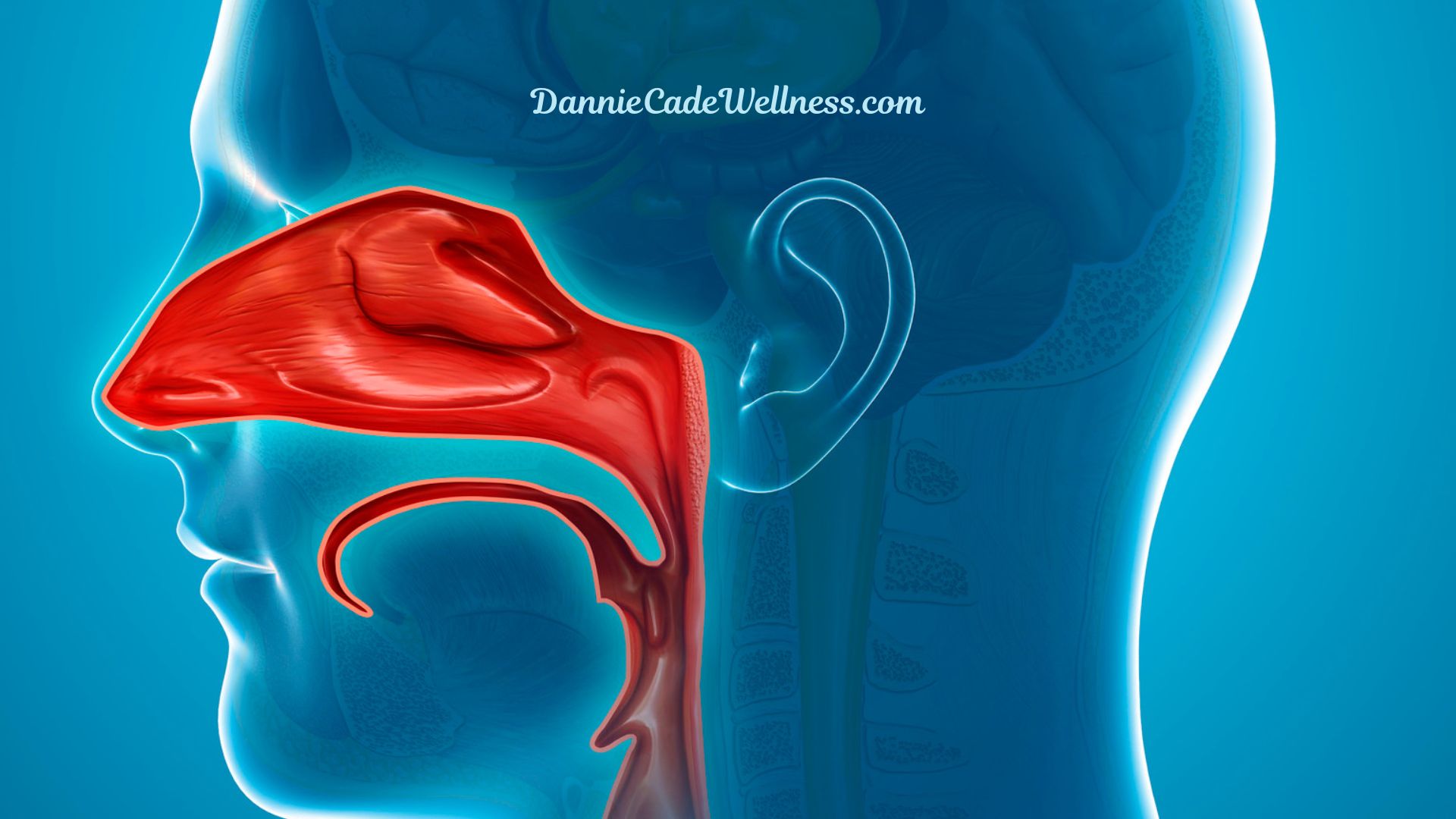
Now having said that, nasal breathing is ideal because it filters and humidifies the air we’re breathing, increases nitric oxide, and supports deeper sleep. But if you’re taping your mouth and waking up anxious, panicked, or breathless, there’s more going on, so let’s zoom in on that.
Your Face Was Shaped by Your Environment
Most of us weren’t born with ideal airways. We inherited a modern world that literally reshapes our faces. Dr. John Mew, a UK orthodontist, pioneered the theory that oral posture, diet texture, and breathing habits directly shape jaw and facial development.
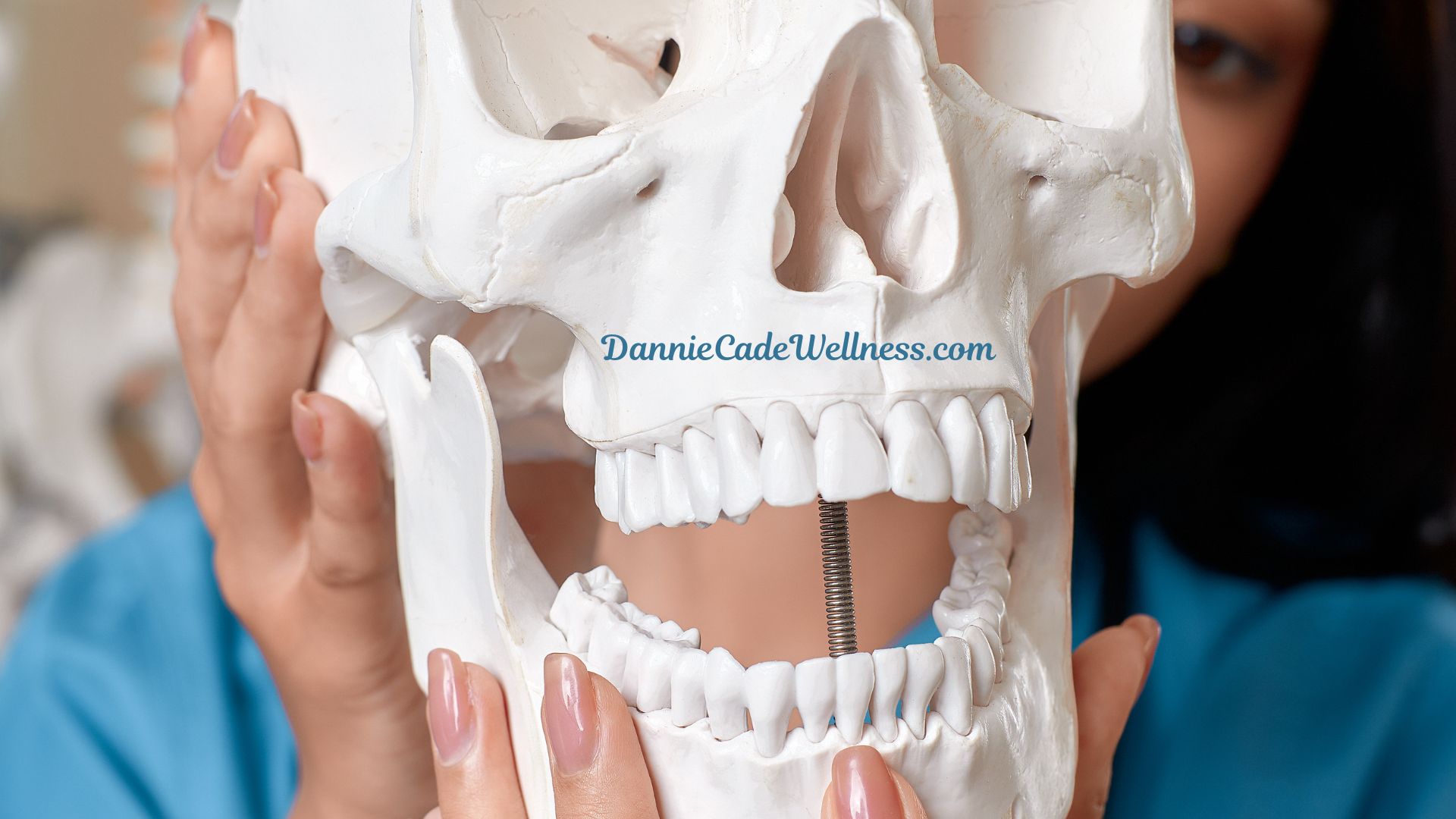
He says that soft, processed diets, poor tongue posture, and constant mouth breathing cause the upper jaw, called the maxilla, to grow downward and backward instead of forward, like it should.
The result?
- Narrow palates
- Smaller sinuses
- Collapsed airways
Pediatric dental and ENT research backs this up.
Chronic mouth breathing in early childhood has been linked to:
- Long, narrow faces
- Low tongue posture that reduces palatal width
- Smaller nasal passages
- Higher risk of poor sleep
- ADHD-like symptoms
- Even anxiety
So when we mouth breathe, we’re not failing, we’re adapting to the structure we grew into, and that structure? It’s shaped by how we ate, how we sat, how we breathed, and whether our nervous system ever felt safe.
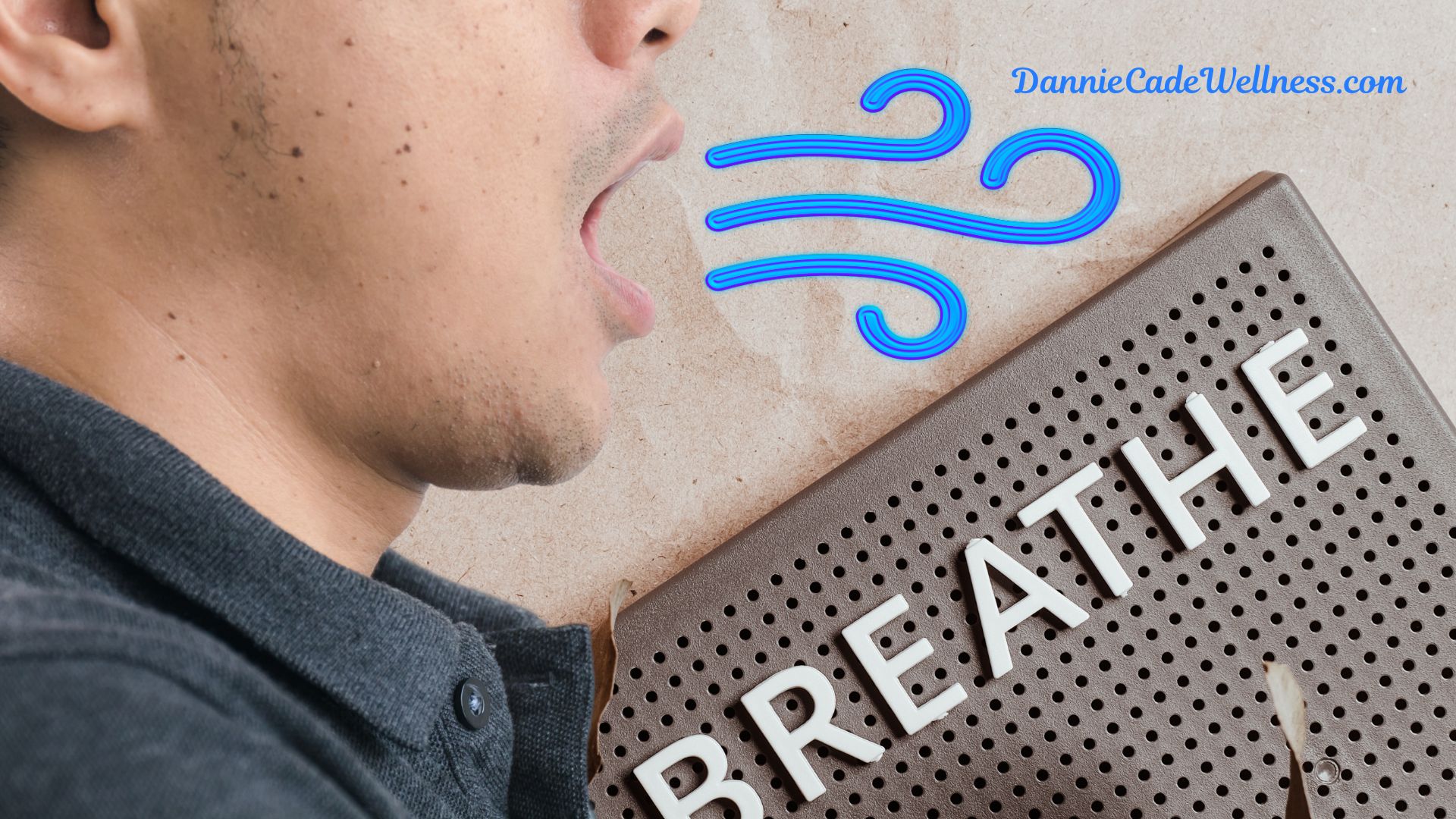
Tech Neck, Trauma, and Airway Collapse
Then there’s a newer one: “Tech neck” that forward-head posture so many of us have from phones and screens. It shortens our neck muscles, tightens the jaw, and limits airway space. Combine that with a sedentary lifestyle and chronic low-grade inflammation, and we’re stuck with shallow, restricted breathing before we even lay down at night.

So then we tape our mouths as the latest solution and wonder why we feel suffocated and it’s because we’re trying to force a system to perform when it hasn’t been supported.
Breath Is Emotional, And Trauma Lives In It
Here’s what almost none of the influencers out there tells you: Breath is emotional. I learned this from a friend of mine, Audrey Meuse, who does breathwork and more … and it’s true. I actually thought that was all just woo-woo stuff until she taught me otherwise.

It’s stored in the nervous system, in the diaphragm, in the patterns your body has been using to survive. When you’ve lived through trauma – be it emotional, medical, or even just prolonged stress – your breath adapts. It flattens, it speeds up, the tongue drops and the diaphragm freezes.

That’s not dysfunction, it’s protection. So when people try to tape their way into a calmer state, they often feel worse, because you can’t duct tape your way back into safety, you have to rebuild it.
What to Do Instead
Start with the basics.
- Clear your nasal passages with rinses or steam.
- Support your muscle tone with foods that require chewing—not just blended and soft foods.
- Breathe in ways that don’t feel forced.
- Try humming, sighing, or gentle nasal exhale holds.
- Sip valerian or chamomile tea to help your nervous system soften before bed.
If you do decide to try mouth taping, make sure you’ve earned your way into it, meaning try it while you’re awake first – when you’re calm – not stressed, and pay attention to how your body responds because if your airway isn’t ready, and your system doesn’t feel safe, your jaw is locked or your sinuses are narrow, that tape can feel like a threat, not a tool.

Final Thoughts
Here’s what I want you to remember:
Your breath is not broken, and no, your body isn’t failing you. Not at all. It’s doing exactly what it was shaped to do, by your environment, your posture, your stress, and your survival So let’s stop taping symptoms shut and start listening to what those symptoms are saying. Real healing isn’t forced, it’s aquired with trust, structure, and real support.
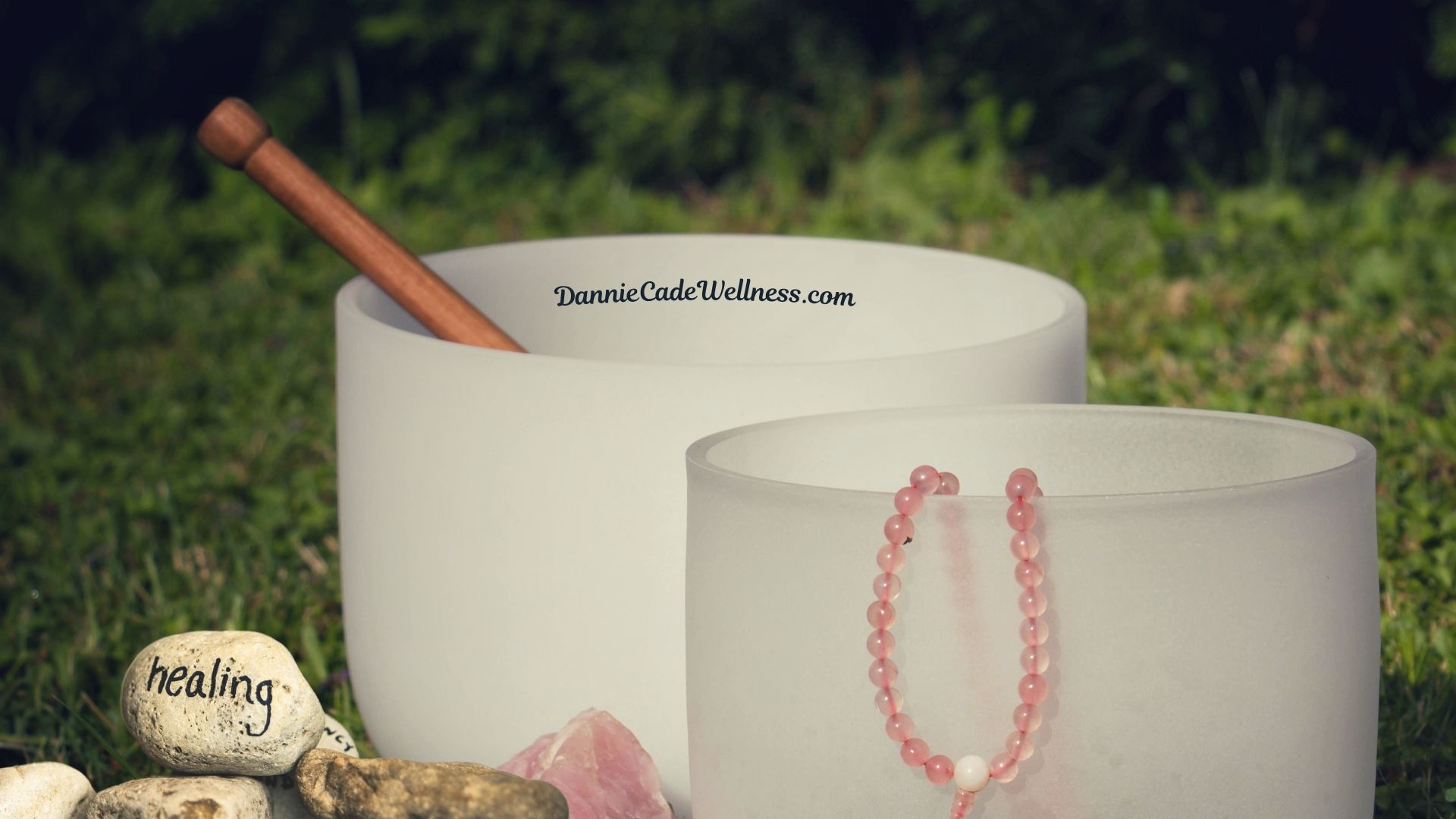
Please drop me the word BREATH if you found this to be useful in any way, and if you’re up to it? Share your experience! Have you tried this? How did it work out for you, I’d love to hear your experience. Thanks so much and for reading all the way to the bottom I’d like to offer you a free membership to my online wellness center that’s packed with all sorts of articles, recipes, interviews with experts and a whole lot more. Grab it now at: https://www.danniecadewellness.com and enjoy!


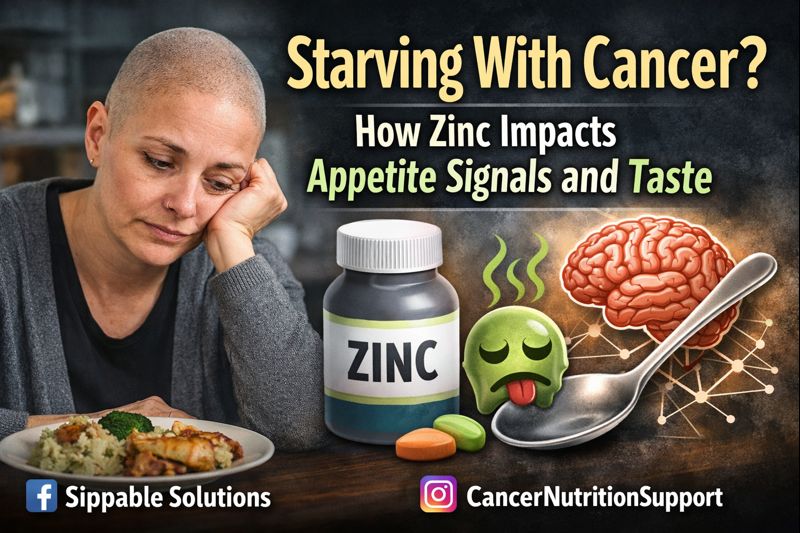
Facebook Comments